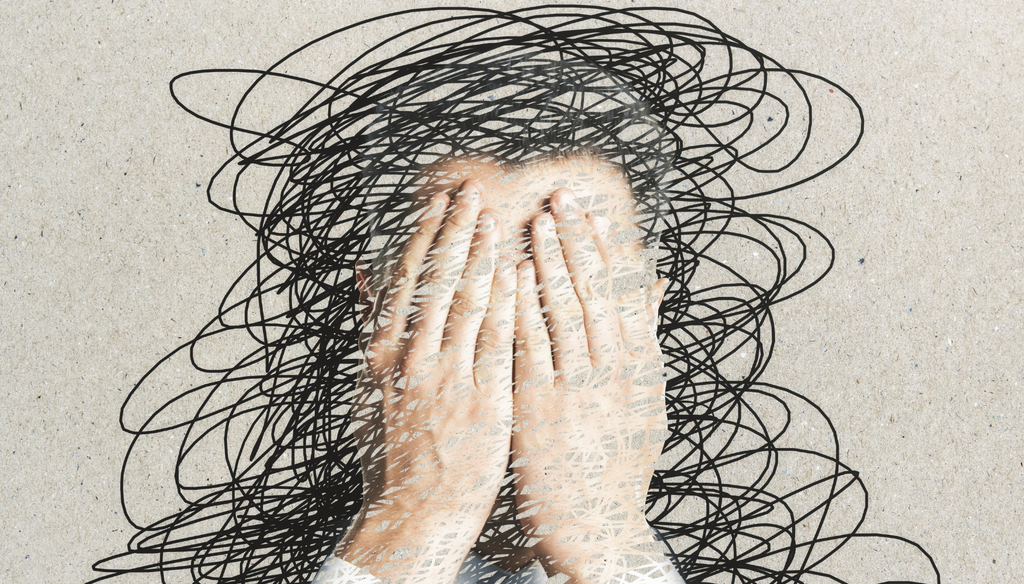Coping with Stress: 5 Main Tips to Know

Stress is a normal aspect of life; however, it can often take a toll on both our mental and physical health. Therefore, it’s important to cope with it healthily and productively.
People worry for many reasons. According to the American Psychological Association, almost 8 of 10 Americans reported coronavirus as the main stress factor; 77% of US citizens reported feeling stressed about the future of the country; 63% of Americans said that the economy is the main thing they worry about. Obviously, there are many more reasons why people feel stressed, but knowing how to cope with this state of mental tension is a path toward a happier life.
1) Identify Your Triggers
Triggers are situations or events that cause you to feel stressed or overwhelmed. Some common stress triggers include work deadlines, financial problems, family conflicts, and health issues. Identifying your triggers is the first step to managing and reducing stress.
To identify your triggers, take some time to reflect on past experiences. What situations have caused you to feel stressed in the past? Are there certain people or places that trigger stress for you? Then write your thoughts in a journal to help you better understand your emotions.
You can also pay attention to your body's physical responses to stress. For example, do you feel tension in your shoulders or stomach? Do you have trouble sleeping or get headaches when you're stressed?
Once you've identified your triggers, you can take steps to manage them. For example, if work deadlines cause stress, you can break tasks into smaller, more manageable steps and create a schedule to help you meet your deadlines. Likewise, if family conflicts trigger anxiety, you can set boundaries and communicate openly with your loved ones.
2) Avoid Unhealthy Coping Mechanisms
When we feel on edge, we often turn to unhealthy coping mechanisms that may provide momentary relief but ultimately lead to further problems. Common unhealthy coping mechanisms include substance abuse, binge eating, procrastination, and social withdrawal.
It's important to identify any unhealthy coping mechanisms you may have and replace them with healthier ones. By practicing healthier habits, you can effectively relieve pressure and achieve overall well-being.
Some of the most common unhealthy coping mechanisms include:
Substance abuse:
Substance abuse, whether it's alcohol or drugs, can temporarily escape stress but ultimately leads to a vicious cycle of addiction, further strain, and negative consequences.
Instead of turning to substance abuse, consider talking to a trusted friend or therapist, practicing relaxation techniques, or engaging in physical activity.
Binge eating:
Binge eating, while providing momentary comfort, can lead to health problems and further anxiety about weight gain and body image.
Rather than binge eating, try incorporating healthy meals and snacks into your day and practicing mindful eating.
Procrastination:
Procrastination can cause further stress as deadlines approach, leading to the feeling of failure.
Instead of procrastinating, break down tasks into manageable steps and set small, achievable goals.
Social withdrawal:
Social withdrawal may seem like a way to avoid stressors, but it ultimately leads to isolation and loneliness, exacerbating pressure.
Instead of withdrawing socially, seek support from your loved ones and get involved in activities that bring you joy and fulfillment.
3) Create a Support System
Coping with stress is no easy feat, and it can often feel like a heavy burden to carry on your own. That's where having a strong support system comes into play.
Step #1:
The first step is identifying the people in your life who can provide you with emotional support. Those people are usually family members, friends, co-workers, therapists, or even strangers. If you have found comfort in a stranger, ask for their phone number and search it on PhoneHistory. You’ll know where they work, their interests, and address in case you want to visit them.
The key is to surround yourself with kind people who have your best interests at heart.
Step #2:
Once you've identified your support system, communicating with them is important to let them know what you're going through. Whether it's a quick text message or a longer conversation, sharing your struggles with those you trust can make you feel more understood and less alone.
Bear in mind that seeking help is a sign of strength, not weakness.
Step #3:
Another essential aspect of building a support system is learning to ask for help whenever you need it. Whether it's help with a task, advice, or just someone to listen to, it's important to reach out when you're overwhelmed. Learn to lean on your support system when you need it most.
Step #4:
Finally, it's important to cultivate a sense of community within your support system. You can simply schedule regular phone calls or get-togethers with family and friends. You can also join a club or support group.
Surrounding yourself with positive, like-minded individuals can give the required support that can help alleviate pressure and promote overall well-being.
4) Practice Relaxation Techniques
Relaxation techniques alleviate tension and improve mental health. You can carry out these techniques at any time of the day without needing a lot of equipment or preparation. Here are some effective relaxation techniques to consider:
Deep Breathing:
Sit or lie comfortably, close your eyes, and inhale deeply through your nose. Next, exhale slowly through your mouth and visualize all the tension leaving your body. Repeat for several minutes until you feel relaxed.
Visualization:
Visualize yourself in a calm setting like a beach or forest. Imagine all the sights, sounds, and smells of that environment. You can also picture yourself in a happy place or envision positive experiences in your life.
Yoga and Stretching:
Yoga and stretching reduce tension and improve flexibility. You can take classes, follow online tutorials, or do simple stretches independently.
Meditation:
Focus on the present and observe your thoughts without judgment. Sit or lie down in a serene place and pay attention to your breath. If your mind wanders, focus on bringing it back gently.
Stress wearables like TouchPoints are helpful tools when meditating. They can calm racing thoughts, promote relaxation, and help you focus.
Massage and Acupressure:
Massaging your neck, shoulders, and temples can help to relieve tension and headaches. Acupressure can also effectively reduce stress.
Aromatherapy:
Essential oils facilitate relaxation and improve mood. Try diffusing lavender, chamomile, or peppermint oil in your room or adding a few drops to your bath.
5) Seek Professional Help
Sometimes, despite our best efforts, managing anxiety seems like an uphill battle. However, if you find yourself feeling overwhelmed and unable to cope, seeking professional help is a valuable step in getting your stress levels under control.
Step #1:
Consider the type of provider you need. If you are struggling with specific issues, such as anxiety or depression, a therapist or counselor may be the best option. You may need a doctor if your stress is related to physical health problems.
Step #2:
Once you have determined the type of provider you need, it is important to research potential professionals in your area. Look for someone with experience treating your issues, and feel free to ask for recommendations.
When first meeting with a professional, be open and honest about your situation. Let them know your stress triggers, how you have been coping so far, and your treatment goals. They will need this information to create a treatment plan tailored to your needs.
Bear in mind that seeking professional help is a process. Finding the right professional and developing an effective treatment plan may take time. However, getting your stress under control is well worth the effort.
Key Takeaways
Stress is a part of life; hence, everyone experiences it in one form or another. The key to managing it effectively is understanding that all people need help and that you’re not alone.
By integrating the above strategies into your daily routine, you can manage your stress levels better and lead a more peaceful and balanced life. Remember, it's important to prioritize self-care and take care of your mental health. By doing so, you'll be better equipped to handle the challenges that come your way.




